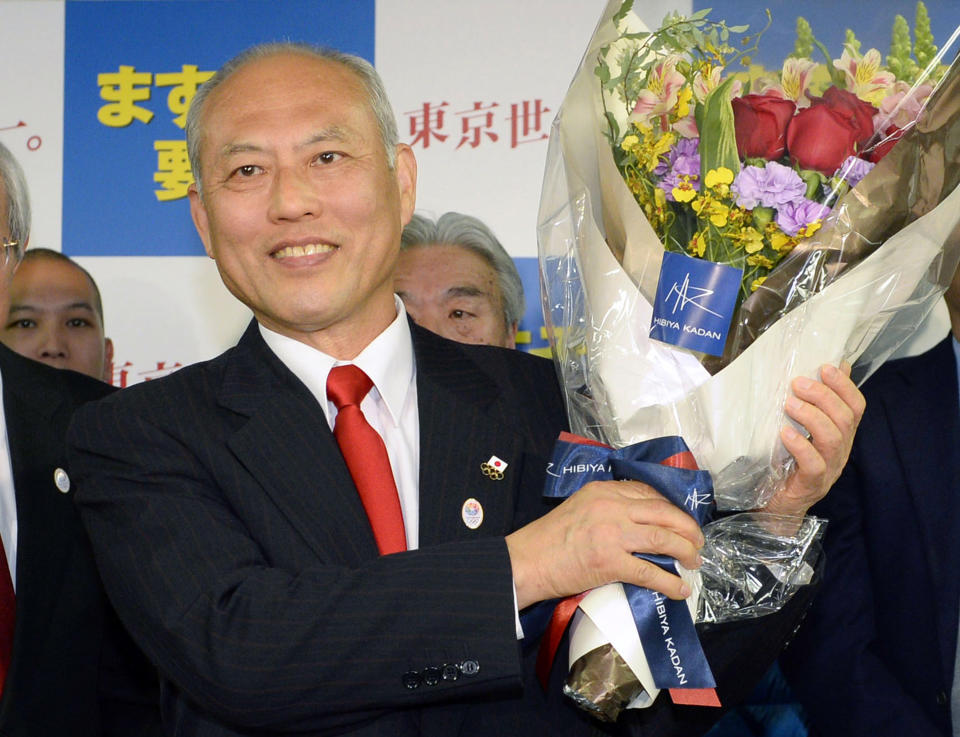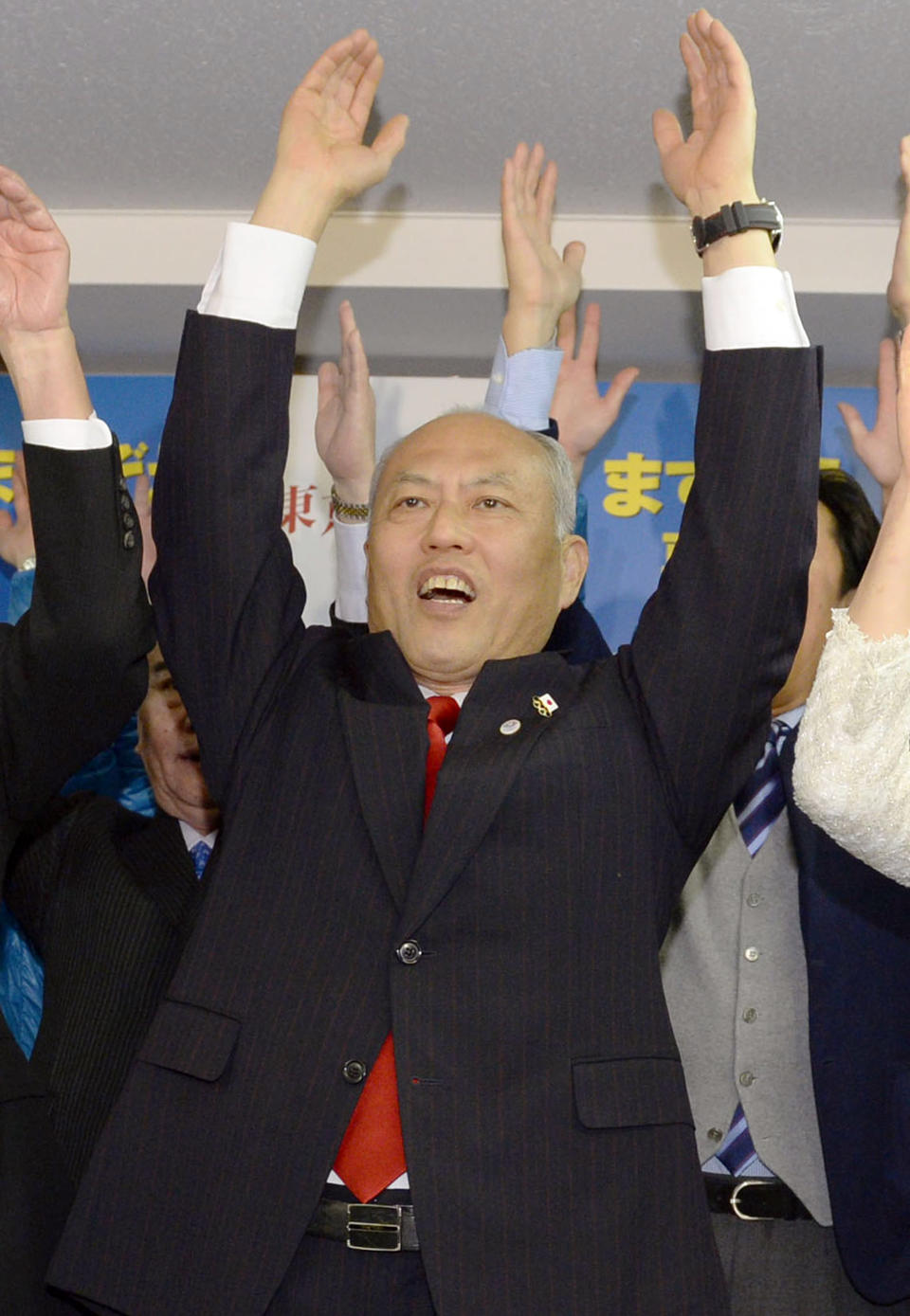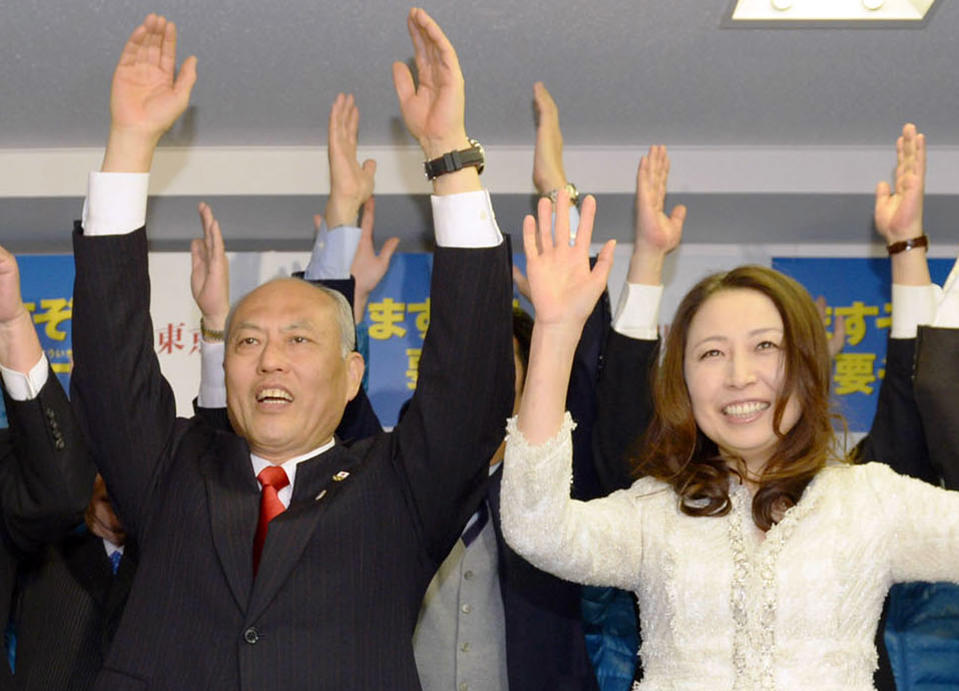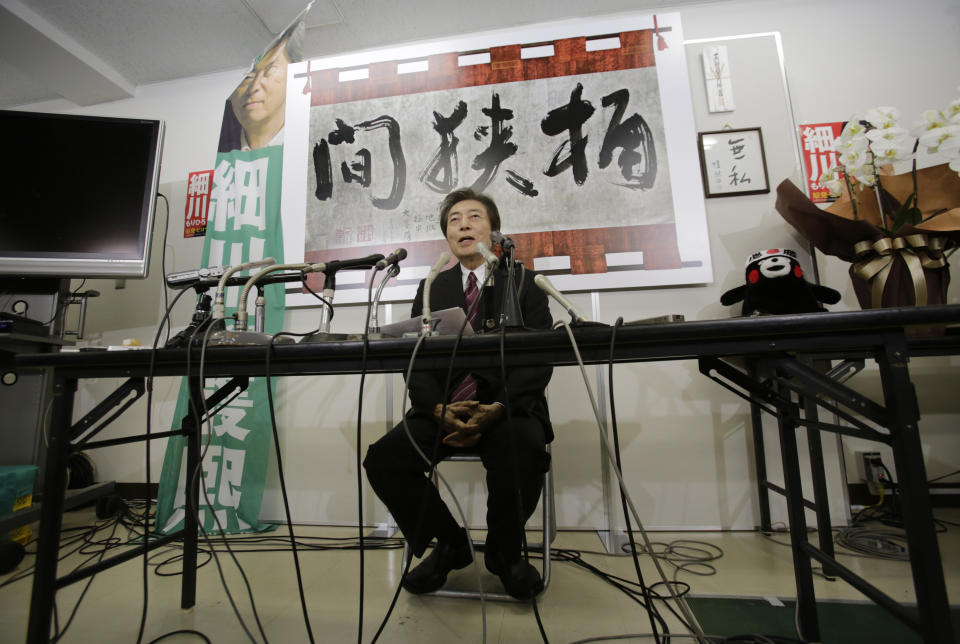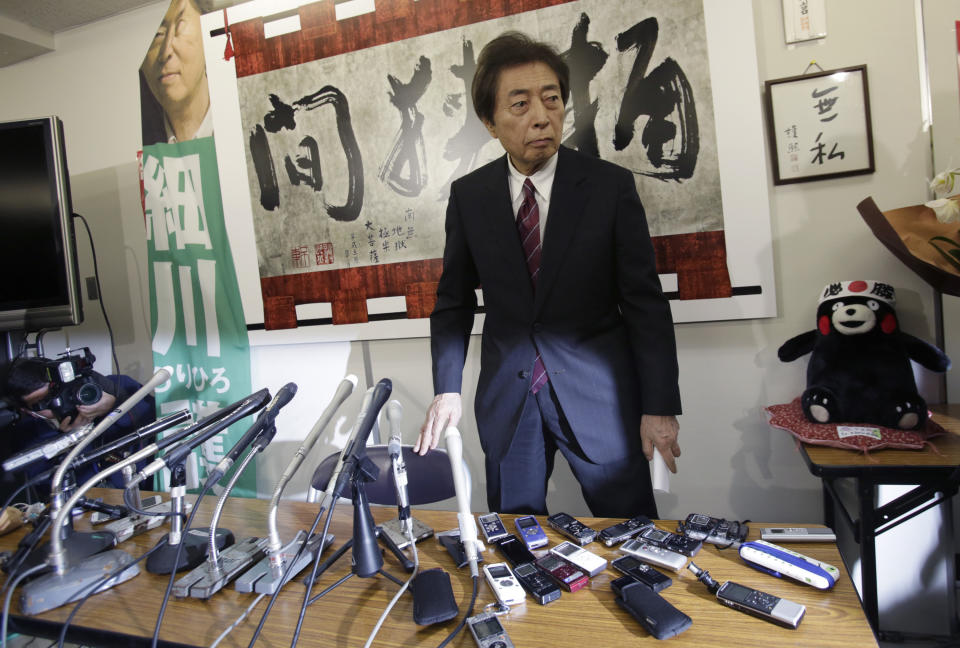Ruling party-backed candidate wins Tokyo race
TOKYO (AP) — Yoichi Masuzoe, a former health minister backed by Japan's ruling party, easily won Tokyo's gubernatorial election Sunday, defeating two candidates who had promised to end nuclear power.
The ballot was widely seen as a test for Japan's public opinion on atomic power in a nation shaken by the Fukushima nuclear disaster. Masuzoe, 65, was backed by Prime Minister Shinzo Abe, who wants to restart Japan's 50 nuclear reactors.
Masuzoe received 2.1 million votes, more than the combined total of the two anti-nuclear candidates, who finished second and third. With the city cleaning up from a rare snowstorm, turnout was a low 46.1 percent, down from 62.6 in the previous vote.
The anti-nuclear candidates, human rights lawyer Kenji Utsunomiya and former Prime Minister Morihiro Hosokawa, advocated an immediate end to nuclear power.
"The Fukushima disaster has left me without words, but reducing our dependence on nuclear power needs to be done gradually," Masuzoe said after his victory.
He appealed to voters by identifying himself with Abe's relatively successful economic policies, which have set off a Japanese stock rally, and by promising a successful 2020 Tokyo Olympics in balloting that coincided with the Sochi games.
Yoshiro Mori, president of organizing committee for the Tokyo Olympics, welcomed Masuzoe's victory.
"He will be a key member of our organizing team, and I am confident that he will provide invaluable support to our efforts to organize the Tokyo 2020 Olympic and Paralympic Games," he said in a statement issued in Sochi, Russia, where he is attending the winter Olympics.
The anti-nuclear vote was divided between Utsunomiya, who finished second with about 982,000 votes, and Hosokawa, who received 956,000. Hosokawa was backed by popular former Prime Minister Junichiro Koizumi, who pushed for zero nuclear power.
"This could have worked as a key vote on nuclear power, not just about city politics," Tetsuro Kato, professor of political science at Waseda University in Tokyo, said. "But those pushing for zero nukes failed in their strategy."
The election was held to replace Naoki Inose, who led Tokyo's Olympic bid with great fanfare, but resigned late last year over a money scandal.
___
Follow Yuri Kageyama on Twitter at twitter.com/yurikageyama

